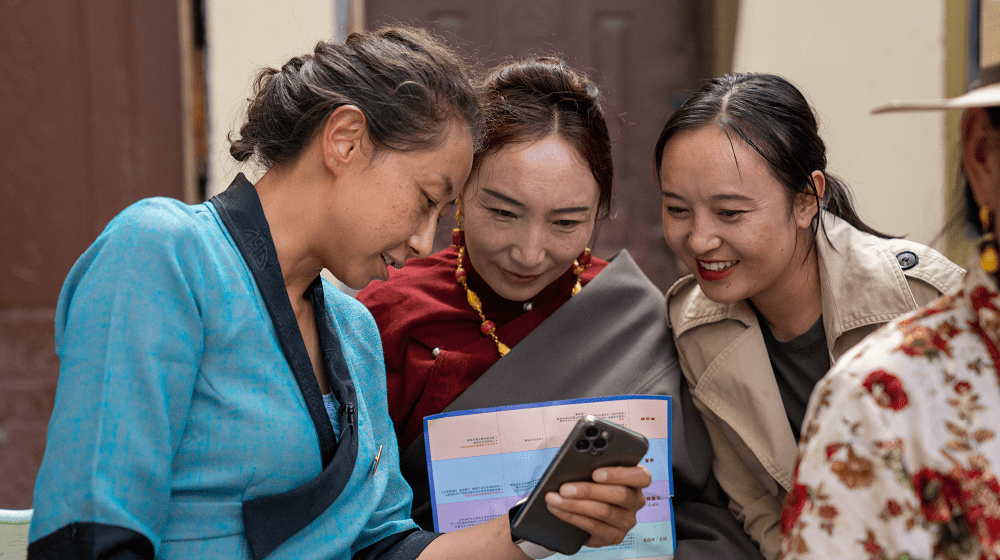"I had always dreamed of building a team of community health advocates in Yushu," says Tseyongjee, the founder of a local non-profit organization in China's northwest Qinghai province.
She was born into a Tibetan family in Yushu county, where Tibetans make up over 90 percent of the population. The landscape there is characterised by mountains and plateaus with a hard living environment, with an average altitude of more than 4,200 meters. Many people live there with limited access to health information.
Tseyongjee was fortunate. She earned a master's degree in public health and later became a high school English teacher. In 2018, she founded the Yushu Semkyid Health Education and Promotion Association, the first local civil society organization to improve public health.
“Simple health knowledge and skills can save lives,” comments Tseyongjee.
She explains that in remote areas, many health problems can be avoided early on. A newborn, for example, may experience breathing difficulties due to obstructions in its mouth or nose. Tseyongjee and her team used to visit one community and teach them how to apply simple first aid techniques to prevent an injury or even death from occurring.
However, many challenges were still there. One was the lack of human resources.
Tseyongjee volunteered in 2019 to participate in a project to improve sexual and reproductive health among vulnerable populations in Qinghai, supported by the National Health Commission, China Family Planning Association, local health and education authorities, and the United Nations Population Fund (UNFPA).
Tseyongjee, as a language facilitator, helped to overcome language barriers and collect data on the local situation. These data played a critical role in learning about the local knowledge gaps on sexual and reproductive health.
According to the data, just one in every three Yushu women is familiar with sexual and reproductive health issues, including contraception, HIV/AIDS, breast cancer, and cervical cancer.
Tseyongjee recruited 40 community volunteers with varied backgrounds with the project support, including local doctors, monks, and elementary school teachers. They are trained on basic health knowledge, including maternal health, sexually transmitted infections, and voluntary family planning.
In addition, a bilingual training manual in Tibetan and Mandarin is available to assist Tseyongjee and the volunteers in conducting local health education activities at least five times each year for the next five years.
"I find the training to be professional, especially the knowledge on women's health."
"There are also training resources for us to study after the training, which are quite useful," adds a community volunteer.
"I am optimistic that with this long-term committed team at the community level, we will be able to deliver health knowledge to more people in Yushu," says Tseyongjee.


